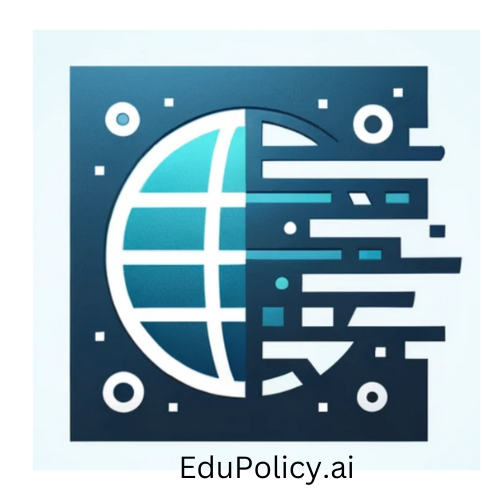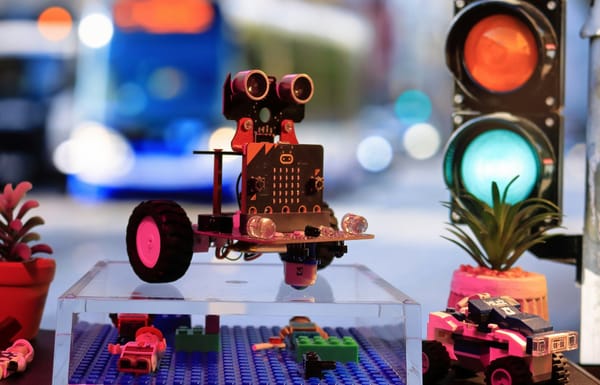Preparing Educators for an AI-Driven Future

AI in Education: Navigating Challenges and Seizing Opportunities.
The past year has been a whirlwind since AI began to dominate all of the headlines, since Nov of 2023 when OpenAI released Chat GPT. It seems everything we knew about education went out the window in the blink of this proverbial eye. In an AI-driven era, education beckons a pivotal shift not just in curricula but in the entire pedagogical landscape. This evolution will transcend mere integration of AI tools; rather, it necessitates a fundamental transformation in the educator's role within an AI-enhanced learning environment.
As we delve into the depths of AI in education, we encounter pressing questions: How prepared are today's educators? What new competencies must they develop? And, crucially, how do we balance the technological advancements with the indispensable human element in education?
Preparing Educators for AI Integration
The challenge educators face is twofold: adapting teaching methodologies to leverage AI and maintaining their critical role as guides and mentors. This balance will be crucial (if not already) in both K-12 and higher education settings. As AI becomes increasingly sophisticated, educators must quickly assess and evolve; embracing new tools while preserving the core values of teaching.
The Role of AI in Student Writing: The Importance of Student Agency and Critical Thinking
Consider any given case of students submitting essays written by AI tools, let’s use ChatGPT as a case-in-point. These scenarios highlights the importance and urgency required need for educators to develop strategies for integrating AI that foster original thinking and creativity, rather than merely relying on AI-generated content.
AI's potential to revolutionize education is undeniable. However, its role should complement, not replace, human involvement and critical thinking. Educators will want to focus on fostering student agency, encouraging learners to actively engage with learning material, question assumptions, and formulate independent ideas. But how do we make that happen when students simply see AI technology as a way of getting out of doing homework?
Collaboration and Communication Skills
In an AI-enhanced environment, collaboration and communication skills gain paramount importance. As AI handles more routine tasks, the ability to work in teams, share ideas, and articulate thoughts becomes essential. This shift will offer an opportunity to explore collaborative learning in new ways, employing novel pedagogical methods, engaged in both in physical and virtual spaces. Additionally, helping to use AI in facilitating effective student communication.
The Future of Assessment and Feedback
Traditional assessment methods may fall short in an AI-driven future. Everything we thought we knew about education seems to have gone out the window almost overnight.
AI offers something previously unmanageable (at scale) with legitimate possibilities for real-time feedback, personalized learning paths, and adaptive assessments tailored to individual needs. Educators can harness these tools for more personalized and effective learning experiences if they understand the basics of how this technology affects pedagogy.
Responsible AI Implementation and Continuous Improvement
With the growing prevalence of AI in education, responsible and ethical implementation is vital. This includes ongoing monitoring, addressing biases, privacy concerns, and ensuring that AI tools align with evolving pedagogical practices and societal needs.
Our best guess tells us, the aforementioned topics are only the beginning of the road in terms of what we will need to understand to better maintain the technology. We don’t even know, what we don’t know yet!
The Road Ahead: A Call to Action
AI in education is an unfolding reality, necessitating active engagement from educators, administrators, and policymakers.
Before we can create and implement new rules and policies, we will have to understand the rules of the playground. This call to action should emphasizes the need to embrace AI's potential while remaining mindful of challenges and ethical implications we will face today and tomorrow.
Student Engagement and AI
Recognizing that student engagement has already begin its transformative processes. AI technology will open new avenues for personalized learning, catering to diverse styles and offering immersive experiences. The applications of artificial intelligence are endless and exhaustive, given the current trajectories. Only through alignment of available AI tools can we expect to match key pedagogical goals (learning outcomes) with the end results successfully enhancing student engagement as needed by education professionals.
This journey towards an AI-integrated educational future is complex and challenging; yet filled with new and interesting opportunities. As educators, we must evolve, adapt, and embrace these changes while remaining steadfast in our commitment to nurturing critical thinking, creativity, and human connection in our student stakeholders. Let's come together to shape a future where AI enhances education, empowering learners across the globe in a responsible and professional manner.




